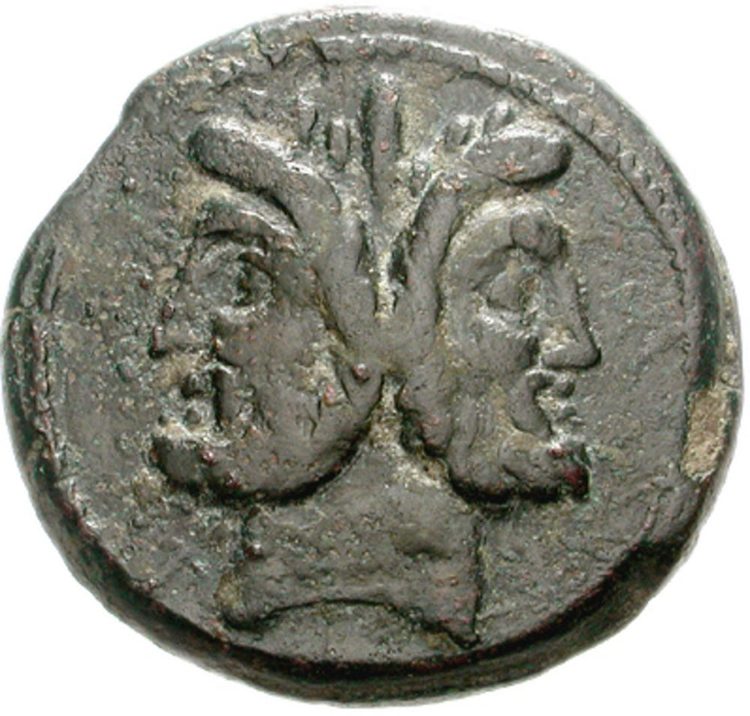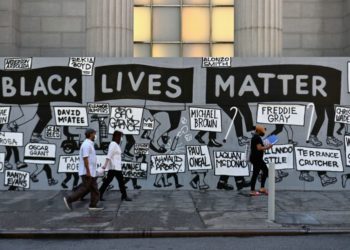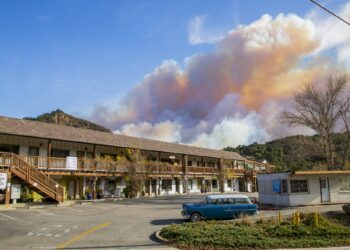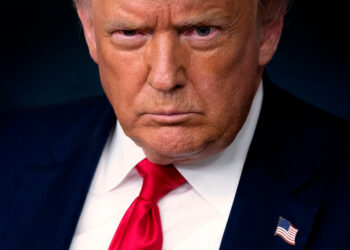We live in Orwellian times. Truth is fake and fake is truth. Good is bad and bad is good. Fact is fiction and fiction is fact; and as in George Orwell’s dystopian classic 1984, “ignorance is strength.” Yes, strength for those who insist on keeping the masses ignorant. This is when historians must step in.
We also live in times when history, as well as the arts and humanities, are increasingly neglected in schools and universities, sacrificed at the altar of the gods of science, technology, engineering, and mathematics (STEM).
This is largely based on incorrect assumptions about its lack of practical application and the belief that the study of history sheds light exclusively on the past. That is simply not true. The training and practice of history provide a long-term (telescopic) perspective, sensitivity toward the interconnectedness of human actions and reactions, and intuitiveness that helps understand the present and even anticipate future outcomes.
That said, us historians are generally shy about forecasting anything. We are trained to avoid it, partly because we focus on the past and write about events and realities from decades if not centuries ago. We are even dissuaded from fantasizing about counterfactuals, what-ifs such as what would have happened if Caesar had not crossed the river Rubicon or Richard Nixon had won the White House in 1964?
Likewise, we learn to refute the cliched aphorism “history repeats itself.” Karl Marx believed in that, even if only in a tongue-in-cheek way:
“History repeats itself,” he wrote, “first as tragedy, second as farce.”
The farthest we are allowed to go is recognizing that human beings will respond in similar ways to similar circumstances at different times.
Connecting Developments

German philosopher Friedrich Von Schlegel once said that a historian is a prophet facing backward; but centuries earlier, Romans had enshrined Janus as a deity of change and time. Janus became a symbol for the field of history, visually represented by a head with two faces, one looking to the past, the other to the future.
Because historians mostly look backward, we develop an unmatched sensitivity to change over time and a telescopic way of connecting developments over long periods of time.
If cultural anthropologists, sociologists, and political scientists are the photographers of human expressions and interactions, historians are their videographers. The same telescopes and video cameras that we point to the past can also be turned to the present and future.
These sensitivities are manifested through a keen sense of intuition, an instinct that historians develop about the past, present, and future. Intuition, I argue, is as important to history as research, reflection, and analysis.
Devaluating Historians
Shortly after the United States’ entry into World War II, Franklin D. Roosevelt, the story goes, gathered a group of historians to pick their brains on the question of how long the war would last. They accurately predicted that it would end in four years.
Since then, however, historians have been increasingly devalued almost everywhere, from the local middle school to the White House, and even at most universities. This has been to the detriment of our society. What if – excuse these counterfactuals – foreign policymakers had consulted historians about how they should treat Cuba and its leaders, or about the wisdom of going to war in Afghanistan and Iraq? What if financial policymakers and government officials had been asked about the potential risks of banking deregulation?
The Donald J. Trump administration is, without doubt, the most hostile ever toward historians and intellectuals in general. It has demonstrated an almost obsessive disdain for truth and carved lapidary phrases such as “alternative facts” and “the truth isn’t the truth.”
The Mainstream Media has NEVER been more dishonest than it is now. NBC and MSNBC are going Crazy. They report stories, purposely, the exact opposite of the facts. They are truly the Opposition Party working with the Dems. May even be worse than Fake News CNN, if that is possible!
— Donald J. Trump (@realDonaldTrump) January 10, 2019
Its mouthpieces have even historicized fiction; the Bowling Green Massacre, to name but one instance. To be fair, many others across the political spectrum have conspired against history and the teaching of history.
Why Historians Are Needed
Paradoxically, historians have been debased and STEM-bullied to their lowest point ever, precisely at a time when we are most needed. Not only do we provide insights about the present and what may come tomorrow, but we also teach students and the general public basic skills required for informed citizenship: the ability to read reflectively and read critically, the capacity to recognize faulty logic, and the ability to express and defend ideas.
As I encourage my students: Read! Think! Disappoint them! Even if they feel powerless, I also tell them: At least they know that you know. There is much power in that.
STEM-bullying must be confronted; the historical discipline must be protected, lest Orwell’s adage become fact: “The most effective way to destroy people is to deny and obliterate their own understanding of their history.”
At the very least, we will be able to say that many of the things we are seeing are neither new nor normal.
Disclaimer: The views and opinions expressed here are those of the author and do not necessarily reflect the editorial position of The Globe Post.






















